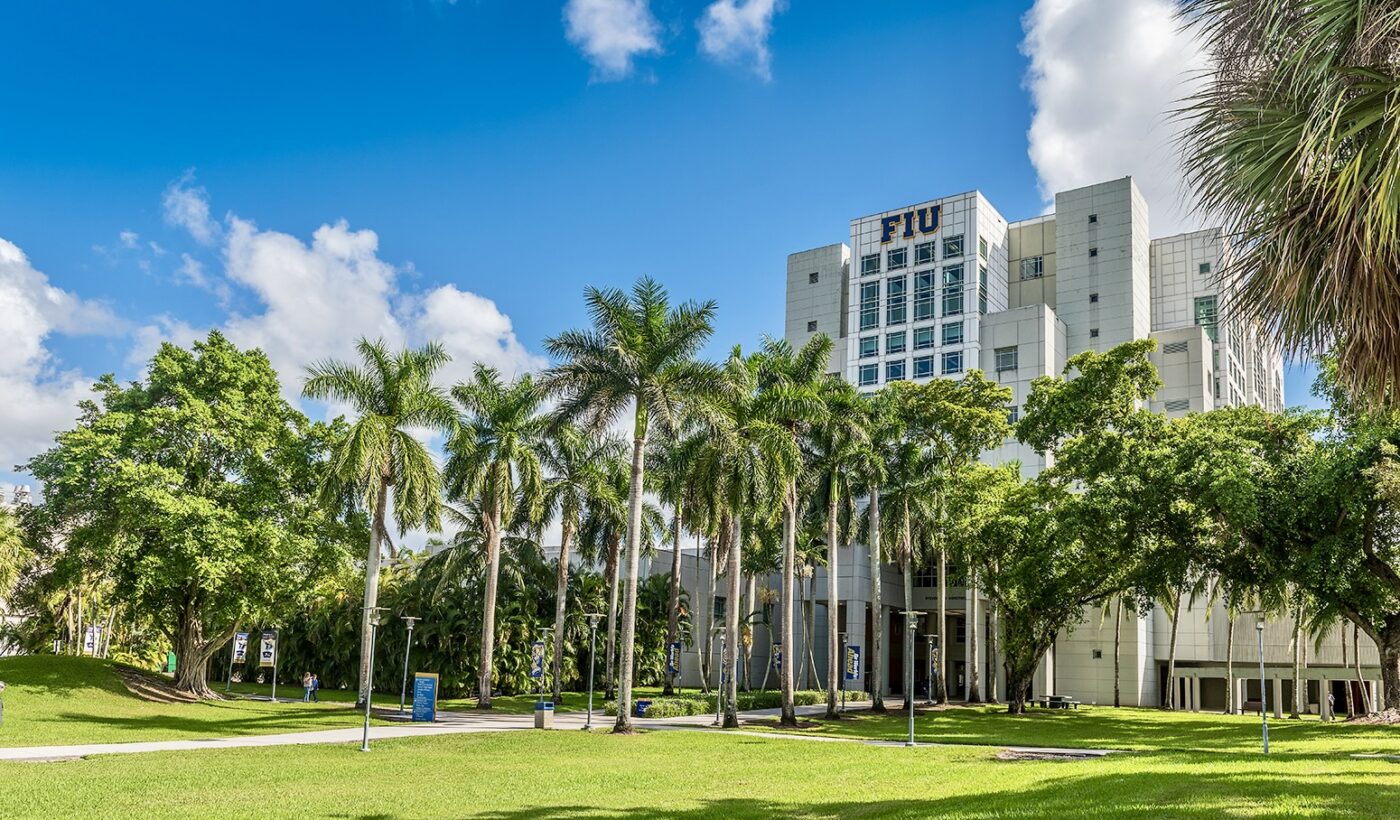If you intend to attend medical school in the Sunshine State, you have several excellent options. From the thriving urban centers of Miami and Tampa to the quieter enclaves of Gainesville and Tallahassee, each school presents unique opportunities. Let’s take a close look at some of your options for medical schools in Florida.
Guidance for Applying to Medical Schools in Florida
At International Medical Aid (IMA), we’re committed to helping future doctors find the right medical schools and succeed in the application process. This guide aims to simplify the wealth of information available about medical schools in Florida. We understand the process can be overwhelming, so we’ve condensed the essentials into this resource. Our objective is to help you make an informed decision on where to submit your application.
Every medical school has its own admission criteria and selection process, making it crucial to research each one carefully. Our comprehensive guides on medical schools can assist you in this effort. Each school has a unique approach to medical education and the qualities they seek in applicants. They may require specific prerequisite courses, United States citizenship, a minimum MCAT score, etc.
Competitive Medical Schools in Florida
Knowing what individual medical schools in Florida are looking for can give you a leg up in the competitive admissions landscape. Whether it’s academic performance or prior medical experience, understanding the factors that each school values can better prepare you for the application journey. You’re already in a good position if you’ve completed your prerequisites at an accredited U.S. institution and have relevant clinical or volunteer experience.
Florida’s medical schools are highly competitive, often requiring high GPA and MCAT scores. This means you must bring your A-game at every stage of the application process to secure a spot.
When exploring schools, consider various aspects such as the institution’s mission, vision, and focus areas. Ask yourself: does this align with my aspirations in medicine? Will I add value to this educational community or simply blend in? These considerations make your application more targeted and more appealing to admissions committees.
Selecting a medical school in Florida that resonates with your career goals and values is crucial. Applicants who are genuinely passionate about their prospective schools stand out. Admissions committees appreciate students who are deeply committed to the medical profession and the ethos of their institution.
By focusing on these elements, you can improve your chances of succeeding in Florida’s highly competitive world of medical school admissions.
Medical Schools in Florida Pre-Med Preparation
Florida’s top medical schools are fiercely competitive, making early and thorough preparation key to a successful application. If you’re in the early stages of your pre-med journey, these tips will help you gear up effectively:
Focus on taking challenging science courses likely to be prerequisites for medical schools, such as Biology, Biochemistry, and Organic and Inorganic Chemistry. Aim for a high GPA; it’s a significant factor in admissions decisions. You can use IMA’s Medical School GPA Calculator to understand better how your GPA measures up.
The MCAT is crucial. Dedicate ample time for intense studying and aim to complete the test well before applying. Florida medical schools often require MCAT scores to be no older than three years; some insist on even fresher scores.
Engagement in clubs, student government, or sports activities enhances your application. Involvement in organizations related to healthcare or the sciences is particularly beneficial.
Volunteer or gain clinical experience in a local clinic, a doctor’s office, or through research opportunities. Admissions committees highly value such hands-on experience at premier Florida medical schools.
IMA offers enriching Pre-Med Shadowing Study Abroad Programs. This standout experience allows you to gain exposure to healthcare settings drastically different from those in Florida or the U.S. This can provide a unique talking point in your application and interviews.
While schools in Florida consider each applicant comprehensively, there’s no ignoring the role of GPA and MCAT scores. You’ll find valuable insights on what to aim for in IMA’s compilation of Average GPA and MCAT Scores for Every Medical School in the US.
Medical Schools in Florida Profiles and Application Tips
Here is a list of medical schools in Florida. Further information about each school, their application processes, and criteria can be accessed via dedicated links. Additional insights are provided into campus life, student organizations, and interview processes.
| Florida Medical Schools | US News Rank | Location | Est. | Annual Tuition and Fees (In-State/Out-of-State) | Avg. GPA | Avg. MCA | First Class Size |
|---|---|---|---|---|---|---|---|
| Univ. of Florida College of Medicine | 35 | Gainesville | 1885 | $36,657 / $48,913 | 3.91 | 515 | 135 |
| Univ. of Miami Miller School of Medicine | 43 | Coral Gables | 1952 | $52,025 / $52,025 | 3.82 | 515 | 204 |
| Univ. of South Florida Morsani College of Medicine | 50 | Tampa | 1971 | $33,726 / $54,916 | 3.91 | 518 | 177 |
| Univ. of Central Florida College of Medicine | 53 | Orlando | 2009 | $29,680 / $56,554 | 3.89 | 515 | 120 |
| Lake Erie College of Osteopathic Medicine (LECOM) | 84 | Bradenton | 2004 | $36,545 / $38,395 | 3.68 | 506 | 182 |
| Florida State Univ. College of Medicine | 98 | Tallahassee | 1961 | $28,987 / $68,619 | 3.83 | 508 | 120 |
| Florida International Univ. Herbert Wertheim College of Medicine | 106 | Miami | 2006 | $38,016 / $69,516 | 3.83 | 511 | 120 |

University of Central Florida College of Medicine Info and Rankings
Located in suburban Orlando, this public institution has an application deadline of November 15, 2023. It sets high standards for its applicants, with a median MCAT score of 515 and a median GPA of 3.89. The school accepts out-of-state and Canadian applicants on a case-by-case basis. With tuition fees of $29,680 for in-state students and $56,554 for out-of-state students, the first-year class size is set at 120. Students can also pursue combined MD/MBA and MD/PhD degrees.
For a comprehensive examination of acceptance rates, MCAT scores, and other essential metrics for your application, be sure to read our definitive guide on the University of Central Florida College of Medicine. This guide will offer you expanded statistics and insights to help you on your application journey.
University of Central Florida (UCF) College of Medicine
Notable Information
- Founded in 2009
- Located in Medical City at Lake Nona, a modern medical complex
- Strong focus on community engagement and interprofessional collaboration
Campus Life
- Beautiful campus in Lake Nona
- Strong student support system
- Diverse student body
Rankings and Stats
- Ranked 53rd in Best Medical Schools by US News
- 98th in Best Medical Schools: Research
- 112-123 in Best Medical Schools: Primary Care
- 110th in Most Diverse Medical Schools
- 31st in Most Graduates Practicing in Medically Underserved Areas
- 154th in Most Graduates Practicing in Primary Care Fields
- 111th in Most Graduates Practicing in Rural Areas
- 13th nationally for dermatology matches, tied with Stanford University
- 13th of the 40 most attractive medical school campuses in the United States
Application Essentials for UCF College of Medicine
To successfully apply for the University of Central Florida’s College of Medicine, multiple elements of your application must be carefully addressed. Your basic academic credentials require a minimum 3.0 GPA both overall and in science subjects like Biology, Chemistry, Physics, and Math. Also, an MCAT score of at least 500 is required. Additional desirable traits include substantial clinical involvement, consistent community service, and exceptional skills in teamwork, leadership, or other special areas such as sports or research.
Prerequisite Courses for Admission
Before enrolling in the M.D. program, you must complete specific prerequisite courses. You should have two semesters each of Biology, General Chemistry, Organic Chemistry, General Physics, College English, and College Math. These courses must include labs and should be taken at accredited U.S. institutions. You have the flexibility to complete these courses online or at a community college.
Optional Courses to Enhance Application
You may consider taking optional courses besides the prerequisites for a more robust application. Biochemistry, Genetics, and Cell Biology are some science courses that can make your application stand out. It’s also good to consider Statistics, calculus, humanities, and communication courses. Interestingly, Biochemistry can replace the second semester of Organic Chemistry if you prefer. If you’re majoring in a non-science field, taking extra science courses is advisable to be more competitive.
Letters of Reference Requirements
Letters of reference are another key component of your application. You will need at least three but no more than five letters. At least one of these should come from a core science faculty member who can discuss your academic capabilities and personal attributes. Other references can be current or recent supervisors, advisors, or mentors. Family members are not suitable references. A current or recent supervisor letter can replace the core science faculty letter for non-traditional applicants.
Joint Degree Programs at UCF
Finally, UCF’s College of Medicine offers multiple joint degree programs, ranging from an M.D./Ph.D. for those interested in biomedical research to other programs that combine medicine with business skills (M.D./M.B.A.), customer-service skills (M.D./M.S. Hospitality), or biomedical engineering (M.D./M.S. Biomedical Engineering). These programs provide additional skills and typically extend the time required to complete your education but offer more career options upon graduation.

Florida State University College of Medicine
Situated in an urban campus in Tallahassee, this Florida medical school also has an application deadline of November 15, 2023. It has a median MCAT score of 508 and a median GPA of 3.83. The tuition is $28,987 for in-state and $68,619 for out-of-state applicants. Here too, the first-year class size is 120. The school accepts out-of-state students.
To gain a thorough understanding of admission requirements and key metrics, don’t miss our 2024 definitive guide on the Florida State University College of Medicine. This guide offers extensive statistics and details that can significantly enhance your application process.
(FSU) College of Medicine Info and Rankings
Notable Information
- Founded in 1961
- Located on the main campus in Tallahassee
- Focuses on primary care and rural medicine
Campus Life
- Vibrant campus with various student activities
- Strong sense of community
- Located in Florida’s capital, Tallahassee
Rankings and Stats
- Ranked 98th in research by US News
- 71st in primary care by US News
- 7th among public universities
- 11th overall in US News’ “Best Graduate Schools”
- 6th in lowest acceptance rate
- Top-20 programs for diversity and percentage of alumni practicing in Health Professional Shortage Areas
Overview of Admissions at FSU COM
Getting into the Florida State University College of Medicine (FSU COM) is no small feat. The institution receives over 7,000 applications annually and employs a comprehensive admissions approach to select future medical professionals. Academic prowess is crucial. Specifically, a minimum undergraduate GPA of 3.3 and an MCAT score of at least 498 are usually needed, barring any special conditions like being from a disadvantaged background.
Candidate Evaluation Criteria
FSU COM focuses on multiple facets when evaluating candidates, including their service and volunteer records, grasp of the medical field, research activities, and the likelihood of them practicing within Florida. Additionally, the admissions process aligns closely with FSU COM’s unique mission statement, favoring those committed to serving underrepresented communities in Florida.
Pre-Enrollment Requirements
Before starting classes, all program requirements, including any ongoing degree programs, must be fulfilled. You’ll need at least a bachelor’s degree by the time you join. And if you’re not a U.S. citizen, ensure you have a valid “green card.”
Coursework Prerequisites
Regarding coursework, the prerequisites include six credit hours each in College English and Mathematics and eight credit hours each in Biology, Physics, and Organic Chemistry with labs. Biochemistry and a preference for additional credit hours in a lab setting are also required. Some recommended subjects are Sociology, Psychology, Genetics, and Spanish.
Application Process
For the application process, two main steps involve AMCAS: submitting a primary application and, later, a secondary one if invited. The deadlines differ for Early Decision and Regular Admission applicants. Fees apply, although these can be waived under certain conditions.
Importance of Letters of Recommendation
Letters of recommendation play a key role in your application. You’ll need a minimum of three and a maximum of six. These should come from college professors, especially those in science or biomedical fields, and medical professionals who can attest to your clinical interactions and qualities.
Special Programs
Another aspect to consider is the Bridge to Clinical Medicine Program, aimed at students from medically underrepresented, rural, and inner-city populations. Completing this three-semester program with adequate grades ensures your entry into FSU COM.
Communication and Deadlines
If you’re communicating with the admissions office, it’s essential to use email as they don’t provide application information over the phone. Lastly, you must ensure that every part of your application is submitted by the deadline. FSU COM won’t notify you if anything is missing, so keeping track of your application status is crucial.
Admission Decisions
Decisions are merit-based, not first-come, first-serve. So, even if you apply later in the cycle, a robust application can still earn you a spot.

University of South Florida Morsani College of Medicine
Located in urban Tampa, USF Morsani is a Florida medical school that has a later application deadline of January 15, 2024. This school is highly competitive, with a strong median MCAT score of 518 and a 3.91 GPA. Tuition is $33,726 for in-state and $54,916 for out-of-state students. The first-year class size is larger, at 177 students. Combined degrees like MD/PhD and BS/MD are available.
For a comprehensive understanding of what it takes to get accepted, be sure to consult our definitive guide for 2024 focused on the University of South Florida Morsani College of Medicine. This guide includes expanded statistics and additional information that can be incredibly beneficial for your application process.
(USF) Morsani College of Medicine Info and Rankings
Notable Information
- Founded in 1971
- Located in Tampa
- Strong focus on diversity and inclusion
Campus Life
- Urban campus with many student activities
- Strong sense of community
Rankings and Stats
- Ranked 50th in Best Medical Schools: Research by US News for 2023-2024
- 46th in Best Medical Schools: Primary Care
- Fastest-rising medical school in research over the last decade
- 3rd nationally and 30th internationally in the 2021 Impact Rankings by Times Higher Education
- 4th nationally on the 2020 list of Best Golden Age
Prerequisites for Enrollment
If you plan to enroll in the M.D. program at the USF Health Morsani College of Medicine, there are several vital prerequisites and steps to follow. You’ll need a bachelor’s degree from a U.S. college or university that is regionally accredited, and you must have all prerequisite courses completed at a similarly accredited U.S. institution by the time you enroll. Coursework in biological sciences, chemistry, organic chemistry, biochemistry, physics, mathematics, and English or expository writing is required.
Recommended Additional Coursework
Beyond these basics, the program highly values a well-rounded education. Taking courses in psychology, sociology, arts, humanities, and ethics can be beneficial, and at least 15 semester hours in these areas are recommended.
Extracurriculars and MCAT Requirements
Involvement in extracurricular activities, especially those related to healthcare, volunteering, and community service, is also a strong point on your application. You’ll also need an MCAT score no older than three years by the time of your application, with some exceptions possible.
Application Process
When it comes to the application process, the first step is to complete an AMCAS application, followed by a secondary application specific to Morsani College of Medicine. This secondary application includes a fee, proof of residency, and letters of recommendation.
Interview and Acceptance Timelines
Interviews are extended based on the strength of your application, with the earliest notifications beginning in August and continuing through March. Acceptances are offered on a rolling basis from mid-October until May.
Post-Acceptance Requirements
If accepted, you must submit official transcripts from all educational institutions you’ve attended. Should you need to defer your admission, such requests are considered case-by-case.
Communication and Updates
Communication with the Office of MD Admissions is generally conducted via email, and it’s important to keep your contact information up to date through AMCAS. After your interview, you may update your application with new academic achievements or projects.

Florida International University Herbert Wertheim College of Medicine
Located in Miami, this urban campus has an application deadline of December 1, 2023. The median MCAT score is 511, and the GPA is 3.83. The tuition fees are $38,016 for in-state and $69,516 for out-of-state students. The first-year class size for this Florida medical school is 120. Students can also opt for combined MD/MBA and MD/MPH degrees.
To get an even more comprehensive understanding of the Florida International University Herbert Wertheim College of Medicine, including acceptance rates, MCAT requirements, and more, take a look at our definitive guide for 2024. It offers extended statistics and essential insights to help you in your application process.
(FIU) Herbert Wertheim College of Medicine Info and Rankings
Notable Information
- Founded in 2006
- Located in Miami
- Focuses on serving the underserved
Campus Life
- Urban campus with various student activities
- Strong sense of community
Rankings and Stats
- Ranked 106th in Best Medical Schools: Research by US News
- 102nd in Best Medical Schools: Primary Care
- 1st in diversity among public universities in the nation
- 2nd in diversity among all U.S. medical schools
- Top 50 among U.S. public universities in 15 categories
Eligibility Criteria
If you’re eyeing a spot in the Herbert Wertheim College of Medicine (HWCOM) at Florida International University, here are some important pointers to guide you through the application process. First, you must be either a U.S. citizen or a permanent resident, as international or DACA status applicants aren’t currently considered. You must have a bachelor’s degree by the time you start the program.
Accreditation and Residency Requirements
The institution where you complete your bachelor’s and prerequisite courses should be located in the U.S. or Canada and should be regionally accredited. Regarding Florida residency, it plays a role in tuition costs and preference during admissions. If you claim to be a Florida resident, you must prove it with acceptable documentation.
Academic Requirements
As for your academic background, HWCOM has a list of required courses that include General Biology, General Chemistry, Organic Chemistry, Physics, Mathematics, and College English, all of which should include lab components. You should also have a strong command of both spoken and written English.
Recommended Additional Coursework
While these prerequisites establish the foundation for medical education at HWCOM, going beyond this introductory coursework will make your application more competitive. Recommended courses include statistics, cell biology, foreign languages, genetics, humanities, immunology, microbiology, physiology, and social sciences. Credits from CLEP, online courses, or AP and IB programs are subject to certain conditions and limitations.
MCAT and GPA Standards
To further refine your application, an MCAT score is mandatory. The test must be taken by September of your application year, and scores from tests taken up to three years prior are acceptable. HWCOM’s incoming students usually have MCAT scores around 509 and GPAs near 3.76.
Letters of Recommendation
You will also need to provide letters of recommendation. A minimum of three are required, two from science faculty members and one from another faculty member. If your school has a Health Professions Advisory Committee, you must also submit a letter from them.
Additional Qualifications
Beyond academic requirements, you should be substantially involved in community service, volunteer work, or other activities, especially those serving underserved populations. Experience in healthcare settings is another element that adds weight to your application. While research experience is not obligatory, it is encouraged.
Application Procedure
The application process starts with submission through the American Medical College Application Service (AMCAS). You’ll also need to complete a supplemental application for HWCOM specifically, which comes with a non-refundable $30 fee, although fee waivers are available for those who qualify.
Communication and Deadlines
Don’t forget to keep your AMCAS contact information current, as most communication is conducted through this platform. You’ll need to submit all your letters of recommendation by January 15 of your application year. Timely submission of all materials is critical, as interviews are only scheduled for complete applications.

University of Florida College of Medicine
This Florida medical school is located in suburban Gainesville. The application deadline is December 1, 2023, and it boasts a median MCAT score of 515 and a GPA of 3.91. Tuition fees are $36,657 for in-state and $48,913 for out-of-state students. The first-year class size is 135, and a variety of combined degrees are available, including MD/PhD, BS/MD, MD/MPH, MD/MBA, and MD/JD.
For an in-depth look at acceptance rates, MCAT scores, and other critical metrics, check out our comprehensive guide on the University of Florida College of Medicine. The guide contains extended statistics and insights to further inform your application journey.
University of Florida (UF) College of Medicine Info and Rankings
Notable Information
- Founded in 1885
- Located in Gainesville
- Strong focus on research and innovation
Campus Life
- Beautiful campus with many student activities
- Strong sense of community
Rankings and Stats
- Ranked 35th in research by US News
- 84th in primary care by US News
- 16th for research among public universities
- 29th overall
- 5th best public university in the United States
- Offers a 7-year BS/MD program for sophomores
If you’re interested in attending the University of Florida College of Medicine, there’s a wealth of options and pathways to consider. The school is highly selective, accepting just 135 students out of more than 2,800 secondary applications every year. The medical school looks for students who exemplify the qualities expected of future physicians, including compassion, character, leadership, and academic excellence.
Admission Paths
Starting with the routes for admission, there are three main paths. The first is Regular Admissions, open to those who have or are about to earn at least a bachelor’s degree. The second is the Medical Honors Program, a seven-year BS/MD track for current undergraduates in their second year at an accredited university. This program is quite selective, taking only 10 students annually. The third option is Transfer/Advanced Standing Admissions, which are rare and only open to students from an LCME-accredited medical school entering their third year.
Dual-Degree Programs
In addition to these, the University of Florida College of Medicine offers several dual-degree programs. The M.D.-Ph.D. program has been around for over three decades for those interested in academic medicine. If law interests you, consider the M.D.-J.D. program. This program allows you to earn a medical and law degree in six years instead of the typical seven. You must be accepted by both colleges and follow the specific curriculum requirements. Likewise, an M.D.-M.B.A/M.S.M program lets medical students take a year off to earn a Master of Science in Management or an MBA. The flexible program allows enrollment after medical school’s first, second, or third year.
Specialized Options
Other specialized options include the Discovery Pathways Program, a medical curriculum research track allowing extended research projects. There is also an M.D.-M.P.H. program for those interested in public health medicine and policy.
Eligibility Criteria
For admissions, all applicants must be U.S. citizens or permanent residents. A bachelor’s degree from a regionally accredited institution in the United States is necessary. There’s a thorough review of all applications, considering academic performance, MCAT scores, essays, and personal qualities. If you’re already in another medical program or working toward a graduate-level degree, you must complete all degree requirements before joining the University of Florida College of Medicine.
Academic Requirements
Minimum coursework in the basic sciences is required for admission, with no grade lower than a “C” in each course. This includes biology, chemistry, organic chemistry, biochemistry, and physics courses. The MCAT is also an essential component of the application, with a minimum score of 500 required for consideration.
Diversity and Inclusion
The admissions process is comprehensive and does not discriminate based on race, gender, age, or sexual orientation. While Florida residents get preference, the college also admits a limited number of out-of-state applicants.
Letters of Recommendation
Regarding Letters of Recommendation (LORs), the University requires at least three but will accept a maximum of six. All letters must be sent through AMCAS, and bear in mind that if you send more than six, only the first six received will be considered. The letters should be from individuals who can provide a comprehensive view of your skills, including your adaptability, emotional intelligence, and how well you take criticism.
Additional Academic Suggestions
Concerning academics, there is no rigid requirement for mathematics. However, a grasp of calculus and statistical methods can help. While completing your degree, you should aim to take a balanced set of courses across the humanities, social and behavioral sciences. Engaging in independent study or scientific research is highly encouraged.
Extracurricular Activities
Outside the classroom, your extracurricular activities matter. Work experience, particularly in healthcare, is a plus. Even non-healthcare-related experiences that involve serving disadvantaged communities can be beneficial. The admissions committee acknowledges the time and effort that go into jobs and sports and understands their impact on your academic performance.
Application Process
Now, on to the application process. The initial application is via AMCAS starting in late May with a deadline of December 1st. Following this, you will receive secondary application materials, with a deadline for submission set for January 15th. The whole application will be reviewed by a committee, after which interviews will be scheduled. The admissions committee will make final decisions, and offers are extended on a rolling basis until mid-March.
Communication and Fees
Communication is primarily through email. Ensure you maintain an active, unblocked email address. Sometimes, crucial information is shared via phone, so ensure your voicemail service is functional. A secondary application, mandated by the university and separate from the College of Medicine, costs a non-refundable $30 plus a processing fee.
Post-Acceptance Steps
If you get accepted, you need to respond within two weeks, with a $100 deposit will be applied toward tuition and refundable until May 2, 2023. You must also use the AMCAS Choose Your Medical School Tool by May 1, 2023, to confirm your commitment to UF and withdraw other acceptances. After May 1, you can fully commit to UF using the same AMCAS tool by June 23, 2023, which is required to secure your place. If you miss this deadline, your offer could be rescinded, so comply unless there are extraordinary circumstances, which should be immediately communicated to the admissions office.

University of Miami Miller School of Medicine
Located in urban Miami, the University of Miami Miller School of Medicine has an application deadline of December 1, 2023. This Florida medical school boasts a median MCAT score of 515 and a GPA of 3.82. The tuition is uniform for both in-state and out-of-state students at $52,025. The first-year class size is more considerable, at 204 students. Various combined degrees like MD/MPH, MD/JD, MD/MBA, BS/MD, and MD/PhD are available.
Whether you aim to study in an urban or suburban setting, prefer a larger or smaller cohort, or are considering combined degrees, Florida offers something for every aspiring medical professional.
(UM) Miller School of Medicine Info and Rankings
Notable Information
- Founded in 1952
- Located in Coral Gables, a Miami suburb
- Focuses on global health and research
Campus Life
- Beautiful campus in Coral Gables
- Strong sense of community
Rankings and Stats
- Ranked 43rd in the nation for research by U.S. News & World Report
- 44th in Best Medical Schools: Research
- 108th in Best Medical Schools: Primary Care
- 50th in research by US News & World Report
- 75th in primary care by US News & World Report
- Top recipient of NIH funding in the state
- 40th in the nation by the Blue Ridge Institute for Medical Research (BRIMR)
- 55th in Best Medical Schools
Initial Requirements and Guidelines
If you’re interested in attending the University of Miami Miller School of Medicine (UMMSM), there are specific requirements and deadlines to be aware of. Firstly, you need to have completed a bachelor’s degree before you start medical school. It’s advised to have at least 90 credit hours when you apply. If you’re in the University of Miami’s Medical Scholars Program, these rules don’t apply to you.
Accreditation and Course Credits
Courses need to be completed at accredited institutions in the U.S., its territories, or Canada. Science courses have to be from a 4-year institution. Advanced Placement (AP) credits for subjects like English, behavioral science, biology, physics, and chemistry are acceptable if verified by AMCAS and on your transcript. Only online courses from Summer 2020 to Fall 2021 will be accepted, and credits from foreign institutions or CLEP are generally not considered. There are exceptions for study-abroad programs, though.
Required and Recommended Courses
You need to complete a set of required courses. These include two semesters each of English, chemistry with labs, physics with labs, biology with labs, and behavioral science, as well as one semester of organic chemistry with lab and biochemistry (lab optional). There’s also a list of recommended courses in the natural sciences to improve your readiness for medical school. All these requirements were developed based on the academic experiences of previous successful students, so make sure you meet them.
Application Deadlines and Fees
Two application deadlines are critical. Your AMCAS application is due by December 1, with no exceptions. A supplemental application and a $95 non-refundable fee are due by January 15. Transcripts should be submitted within two weeks after the AMCAS deadline. Also, take the MCAT before the end of the year before you plan to start medical school. The scores are valid for 36 months. A CASPer examination is required, which must be taken in the U.S.
Citizenship and Affinity Criteria
UMMSM usually sends out secondary applications to U.S. citizens and permanent residents. To gauge your competitiveness, you should compare your academic metrics with those of previous incoming classes. Also, make sure to double-check all prerequisites before you enroll. If either of your parents received their M.D. from UMMSM or are full-time faculty, you’ll receive an online institutional affinity card through email.
Letters of Recommendation
For the letters of recommendation, you’ll need a Committee letter packet or three letters from faculty members, with at least two from science faculty who have taught you. You can also submit up to two additional letters to support your application. All of these should go through AMCAS.
Class Statistics
Finally, let’s look at some numbers. The most recent incoming class had 201 students selected from over 10,000 applicants, representing 24 states. The class stats indicate a 3.8 average cumulative GPA, a 3.69 average science GPA, and an average MCAT score of 515. They hail from various undergraduate institutions, including the University of Miami, the University of Florida, UCLA, and Johns Hopkins.
By meeting these requirements and deadlines, you’ll be taking significant steps toward a medical career, learning everything from basic biology to patient care. Applying to medical schools in Florida is an exciting venture with unique challenges and opportunities. Whether you’re an in-state student or from elsewhere, the Sunshine State offers a diverse range of programs that could be an excellent fit for your medical career.

General Information About LECOM Bradenton
LECOM Bradenton serves as a branch campus of the larger Lake Erie College of Osteopathic Medicine (LECOM) system. Positioned in Lakewood Ranch near Florida’s Gulf Coast, this campus offers medical schools in Florida a compelling choice for osteopathic medicine studies. Apart from the Doctor of Osteopathic Medicine degree, students can also pursue five master’s degrees. LECOM’s reputation as the nation’s largest medical college and a cornerstone of LECOM Health cements its prominence in the field.
Lake Erie College of Osteopathic Medicine (LECOM) has secured the 84th rank among the best graduate schools for primary care for the academic year 2023-2024, according to U.S. News & World Report. Situated in Bradenton, Florida, this institution specializes in osteopathic medicine. The average MCAT score for enrolled students stands at 505.9, and the average GPA is 3.68.
Financially, LECOM is fairly competitive with other medical schools in the state. The in-state tuition fee is $36,545, while out-of-state students are charged $38,395. These figures are from the 2022-23 academic year and may have changed. The annual fees are the same for both in-state and out-of-state students, totaling $1,438. There is also a health insurance fee of $4,623. These tuition and fees cover a range of services, including health services, student services, technology fees, and board preparation.
When it comes to admissions, LECOM follows a rigorous and multi-faceted process. Besides the regular application, a supplemental application is required. There is an Early Decision Program (EDP) available for both in-state and out-of-state applicants. The interview process is unique and carried out virtually. Importantly, LECOM seeks candidates who align with their mission of developing competent osteopathic physicians, with strong ethical and professional values.
Overall, LECOM offers a comprehensive educational experience that goes beyond the classroom. Its commitment to primary care, alongside a detailed admissions process and competitive financial options, makes it an attractive choice for students interested in pursuing a career in osteopathic medicine and healthcare.
Mission Statement of LECOM
The overarching goal of LECOM is to prepare students for a variety of healthcare roles, including osteopathic physicians, pharmacy practitioners, and dentists. The focus lies in offering programs with a robust academic structure that combines education, research, and community service.
Application Information for LECOM Bradenton
LECOM Bradenton is a Florida medical school that utilizes the AACOMAS service for its primary applications. Interested candidates should note that the earliest submission date for applications is May 4, 2023, with a final deadline set for April 1, 2024. To increase their chances of being considered for an interview, applicants are advised to submit their materials at least four weeks prior to the deadline.
Selection Factors for First-Year Class Matriculants
LECOM’s admission process focuses on more than just academic excellence. In line with its mission, the school looks for candidates who understand the values of osteopathic medicine. These candidates should be ethically and professionally minded, with an inclination for community service and leadership. LECOM suggests that applicants gain some experience or understanding of the osteopathic field to prepare for their mandatory admissions interviews.
International Students
LECOM does accept applications from international students. Such candidates are required to show that they have enough funds in a U.S. bank to cover the educational expenses. Additionally, transcript evaluations from World Education Services (WES) must be submitted for any coursework completed outside the U.S.
Interview Format
LECOM uses a virtual interview process. Applicants attend an online information session and then answer a set of randomized questions through a video submission, which is then evaluated by the admissions team.
Early Decision Program (EDP)
LECOM offers an Early Decision Program with an application deadline of August 1, 2023, and all supplemental materials due by August 15, 2023. The program is open to both in-state and out-of-state applicants. Decisions for early applicants will be communicated by October 1, 2023.
Supplemental Application
After screening, qualified applicants to this Florida medical school will be asked to fill out a supplemental application. This also requires a letter of recommendation from either a premedical committee or two science professors. LECOM also considers MCAT scores, but they offer an Academic Index Score (AIS) as an alternative, calculated using ACT or SAT scores in conjunction with GPAs. The supplemental application fee is $50 and is non-refundable. However, fee waivers are available with proof of an AACOMAS fee waiver.
Acceptance and Matriculation
Acceptance notices may start going out as early as August 1, 2023, and as late as July 30, 2024. Upon acceptance, students are required to submit a deposit based on a specified schedule. LECOM does allow for deferred entrance, but only in specific cases, such as military deployment.
MCAT and GPA Requirements
LECOM considers a mean MCAT score of 505.9 and an average cumulative undergraduate GPA of 3.68. MCAT scores as old as July 1, 2020, are accepted. Minimum requirements include a GPA of 2.7 or higher and either an MCAT score of 497 or better or an AIS of 110 or higher.
With this information in mind, it becomes evident that LECOM Bradenton has a comprehensive admissions process designed to find students who are not only academically prepared but also aligned with the ethos of osteopathic medicine.
Curricular Offerings
LECOM Bradenton focuses on Problem-Based Learning (PBL) for its curriculum. Students participate in clinical rotations at more than 90 hospitals and clinics across the United States, primarily in Pennsylvania, Florida, and New York.
Preparatory Programs
Master of Medical Science: 10-month, non-thesis program. Criteria for admission include an undergraduate degree from a regionally accredited college/university.
Special Programs
Doctor of Health Care Administration (DHA)
This program aims to equip professionals to become leaders in healthcare administration and to prepare them to serve as college faculty members.
Doctoral in Anatomy Education Program (DAE)
Given the rising need for Anatomy Educators, this program trains candidates to teach anatomical sciences.
Doctoral Program in Medical Microbiology Education (DME)
This program prepares graduates to teach microbiology at the undergraduate and graduate levels.
Doctoral Program in Pharmacy Education (DPE)
Focused on pharmaceutical and clinical sciences, the DPE trains graduates in various curricular techniques.
Doctoral Program in Medical Education (DME)
This program focuses on producing educators who can contribute innovative research in medical education.
Dual Degrees/Concurrent Programs
- DO/MPH: Public Health
- DO/MHSA: Health Services Administration
- DO/MSBE: Biomedical Ethics
- DO/MS MCT: Medical Cannabinoid Therapeutics
- DO/MSMEd: Master of Science in Medical Education
Note: Most masters programs are available through distance education.
Premedical Coursework
- Science Courses
- Anatomy: Recommended
- Biochemistry: Recommended (3 semester hours)
- Biology/Zoology: Required (With Lab, 8 semester hours)
- Chemistry (Inorganic): Required (With Lab, 8 semester hours)
- Chemistry (Organic): Required (With Lab, 8 semester hours)
- Genetics: Recommended (3 semester hours)
- Microbiology: Recommended
- Physics: Required (With Lab, 4 semester hours)
- Physiology: Recommended
- Non-Science Courses
- Behavioral Sciences: Required (6 semester hours)
- College English: Required (6 semester hours)
Campus Facilities and Technology
The campus is strategically located between Sarasota and Tampa, in a suburban setting. It boasts cutting-edge educational technology to aid in learning. This includes smart classroom technology in both large lecture halls and smaller group study spaces. Multipurpose labs and a Standardized Patient Suite add to the teaching capabilities.
Housing and Student Life
LECOM Bradenton does not offer on-campus housing, but assistance is provided to find nearby accommodations. If you plan on living near the campus, you can expect an estimated annual cost for room, board, books, and other living expenses to be around $28,973. As for financial aid, approximately 75.2% of enrolled students receive some form of assistance. The average scholarship or grant provided per student is $3,154.
Accreditation and Institutional Affiliation
LECOM Bradenton has multiple accreditations, including from the Commission on Osteopathic College Accreditation (COCA) and the Commission for Independent Education (CIE) of the Florida Department of Education. Various additional locations are affiliated with LECOM, adding to its extensive reach.
Student Demographics
The campus has a diverse student body, with a range of backgrounds and academic interests. Enrollment statistics provide an insightful look into the makeup of the student community.
Contact and Additional Information
For more information, prospective students can reach out via phone or email and also visit LECOM’s official website.
Further Reading
For an exhaustive understanding of admission prerequisites, programs offered, and other important facets of LECOM Bradenton, consult our comprehensive guide. This resource will equip you with essential details you may need during your application process to medical schools in Florida.
Make Your Application Count with Medical School Admissions Consulting
Preparing an application for medical school is a critical first step, and utilizing Medical School Admissions Consulting services can offer you insights into what schools are looking for. From your statement to your list of extracurricular activities, every element should be well-curated to highlight your qualifications and commitment to medicine.
IMA Resources for Aspiring Medical Students in Florida
International Medical Aid (IMA) offers a wealth of resources designed to give future medical professionals the necessary tools and experiences. From medical school admissions consulting to global internship opportunities, IMA provides multiple avenues for building a strong application.
Our Medical School Secondary Essay Prompts Database is another crucial tool. These essay prompts play a significant role in admissions decisions, giving committees a window into your unique qualities and aspirations.
To get a leg up in the admissions process to Florida’s best medical schools, make sure your GPA and MCAT scores are strong, engage in meaningful extracurricular activities, and seek out relevant clinical experiences.
Good Luck!
We hope this guide offers valuable insights as you research the best medical schools in Florida, whether MD or DO. If you have more questions like, “What are the best medical schools near me?” feel free to explore our other medical school guides.
For more assistance in your application journey, contact International Medical Aid. We offer various services, from medical school admissions consulting to opportunities for gaining vital clinical experience through our medical internships abroad.
Good luck in finding the Florida medical school that’s right for you!

